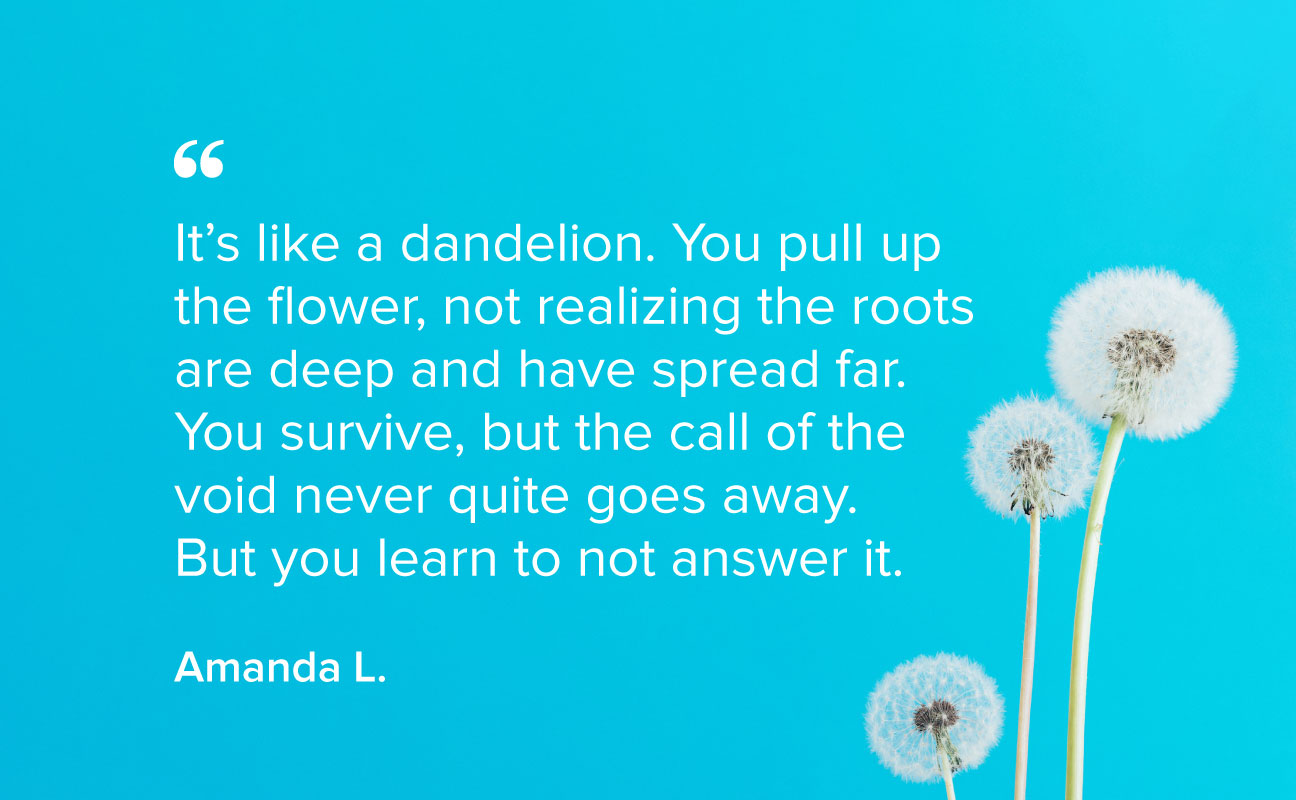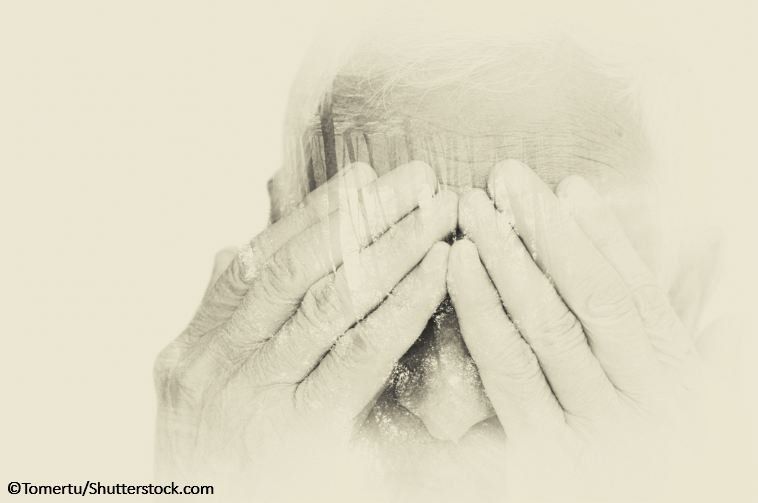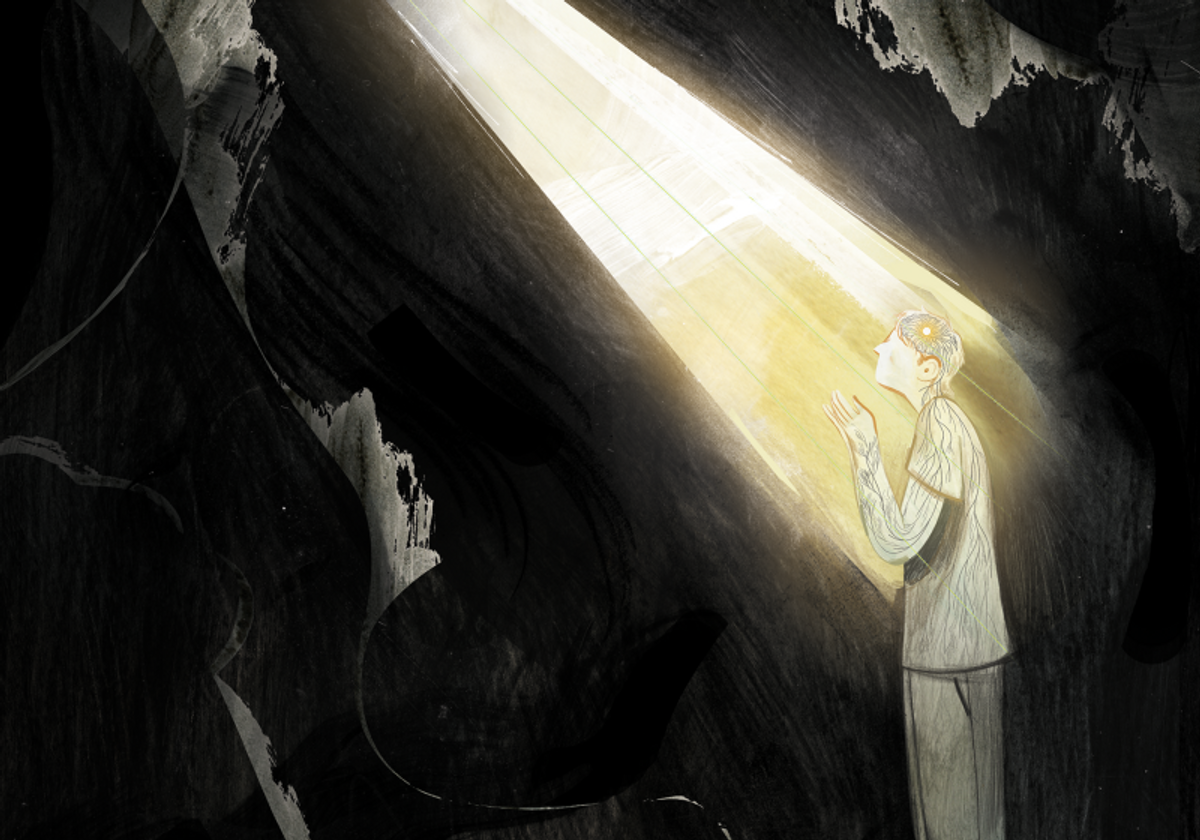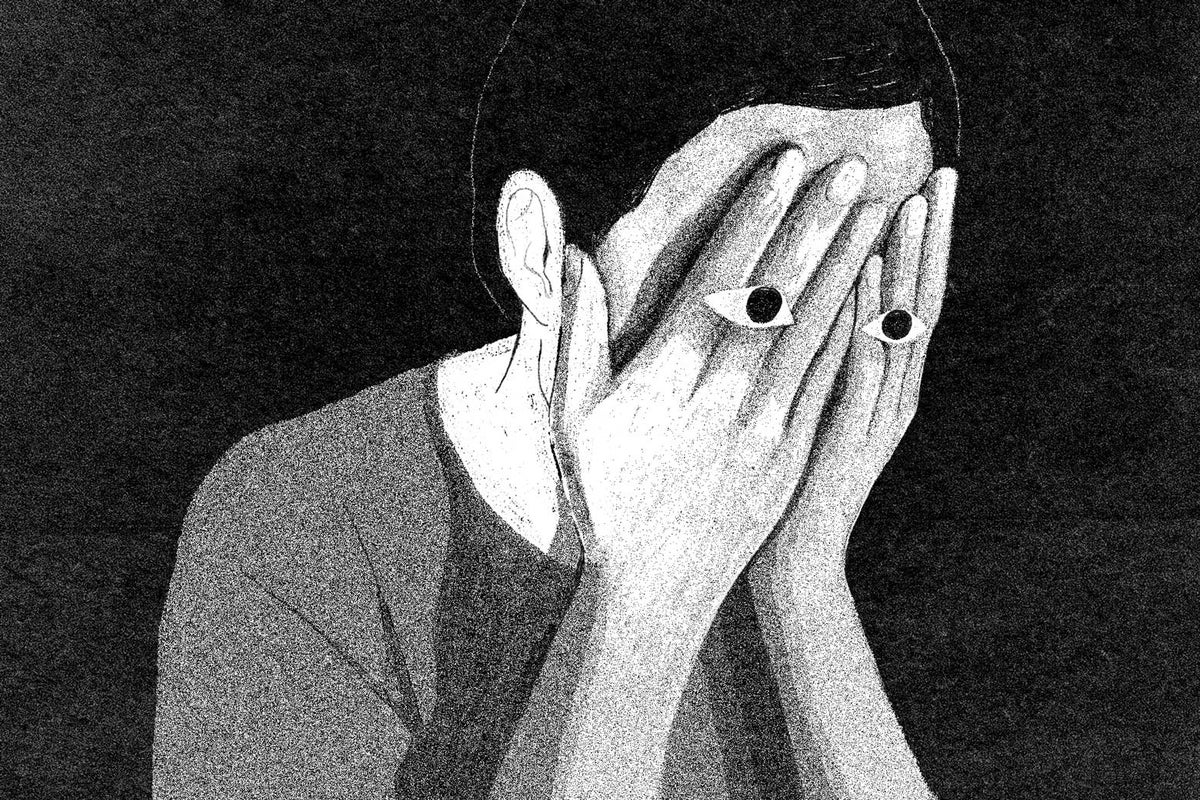suicide is my only option
 This Is What Suicide Survivors Want You to Know
This Is What Suicide Survivors Want You to Know6 Suicide Questions I wasn't sure how to do It can be hard to think about, much less talk about it. Many people move away from the subject, finding it terrifying, even impossible to understand. And suicide can certainly be difficult to understand, as it is not always clear why a person makes this choice. But in general, suicide is often not just an impulsive act. For people who consider it, it may seem the most logical solution. Language Issues Suicide is preventable, but to prevent it, we must talk about it—and this begins with the phrase "commit suicide." Mental health defenders and other experts in which this wording contributes to stigma and fear and can prevent people from being necessary. People "compromise" crimes, but suicide is not a crime. Defenders suggest that "die by suicide" is a better, more compassionate choice. Continue reading to learn more about some of the complex factors that contribute to suicide. We also offer guidance on how to help someone who might be considering suicide. If you have never thought of taking your own life, you may find it hard to understand why someone would consider dying this way. Experts don't even understand why some people do it and others don't, although a number of mental health problems and circumstances of life can play a role. The following mental health concerns may increase the risk of someone having suicidal thoughts: Although not everyone who experiences mental health problems will try or even consider suicide, deep emotional pain often plays a significant part in suicidal behavior and the risk of suicide. But other factors can also contribute to suicide, including: Addressing more than one type of anguish can sometimes increase the risk of suicide. For example, someone who deals with depression, financial difficulties due to job loss and legal problems could have a higher risk of suicide than someone who deals with one of these concerns. It's not always possible to know if someone is considering suicide. Experts agree that a number of people may suggest that a person might have suicide in his or her mind, but not all show these signs. It is also important to note that it simply does not automatically lead to an attempt. In addition, these "warning signs" do not always mean that someone contemplates suicide. Having said this, if you know someone who shows any of the following signs, you better encourage them to talk to a therapist or other health care professional as soon as possible. These signs include: Even if they are not considering suicide, these signs can still suggest something serious is happening. Although it is important to look at the entire image and not assume that these signs always indicate, it is also better to take these signs seriously. If someone shows signs or symptoms, check them and ask how they feel. You may worry that asking a loved one about suicide might increase the likelihood of you trying, or that raising the subject will put the idea in your head. This myth is common, but it's just that—a myth. In fact, it suggests that it can have the opposite effect. Talking about suicide can help reduce thoughts of suicide and can also have a positive impact on mental health in general. And since people who consider suicide often feel alone, asking about suicide can let them know that you care enough or help them. It is important, however, to ask in a useful way. Be direct and do not be afraid to use the word "suicide". How to Educate Suicide Some people can see how to talk about suicide as nothing more than a call for attention. But people who consider suicide have often thought about it for some time. These thoughts come from a place of deep pain and it is essential to take your feelings seriously. Others might feel that suicide is a selfish act. And it is understandable to feel this way, especially if you have lost a loved one to commit suicide. How could they do this, knowing the pain that would cause? But this notion is false, and it makes people unarmed considering suicide by minimizing their pain. This pain may eventually be so difficult to cope with that even one more day seems unbearable. People who come to the suicide option can also feel that they have become a burden for their loved ones. In your eyes, suicide can feel like a disinterested act that will prevent your loved ones from having to deal with them. People who come to the suicide option can also feel that they have become a burden for their loved ones. In your eyes, suicide can feel like a disinterested act that will prevent your loved ones from having to deal with them. At the end of the day, it is important to consider the perspective of the struggling person. The urge to live is very human, but also the desire to stop the pain. Someone can see suicide as the only option to stop pain, although they can spend a lot of time questioning their decision, even agonizing the pain others will feel. You can't control someone's thoughts and actions, but your words and actions have more power than you think. If you think someone you know is at risk for suicide, it is better to take action and offer help that is not necessary to worry about being wrong and not doing anything when they really need help. Here are some ways that can help: You may not feel equipped to help someone in a crisis as you would like, but beyond listening, you don't have to (and should not) try to help them on your own. They need urgent support from a trained professional. These resources can help you get support and learn about the next steps for someone in a crisis: If you are having thoughts of suicide and are not sure who to say, call or text a suicide phone immediately. Most telephone lines offer 24 hours a day, 7 days a week. The trained counselors will listen with compassion and provide guidance on useful resources near you. Crystal Raypole has previously worked as a GoodTherapy writer and editor. Its fields of interest include Asian languages and literature, Japanese translation, cooking, natural sciences, sexual positivity and mental health. In particular, it is committed to helping to reduce the stigma surrounding mental health problems. Last medical review on December 15, 2019 Read this next set of words
Suicide is Not a Selfish Act | NAMI: National Alliance on Mental Illness

This Is What Suicide Survivors Want You to Know

Guns & Suicide | Harvard Public Health Magazine | Harvard T.H. Chan School of Public Health

I Attempted Suicide. Here's What I Want Suicide Loss Survivors to Know

Guns & Suicide | Harvard Public Health Magazine | Harvard T.H. Chan School of Public Health
Is Failure the Only Reason Why Students Commit Suicide?

The one time I tried (when suicide feels like the only option) | by Linda Adams | Medium

Hope When a Suicide Attempt Feels Like the Only Option | Dr. Michelle Bengtson

This Is What Suicide Survivors Want You to Know

Checking out

The Complexities Behind the Act of Suicide
What Suicide Attempt Survivors Want You to Know | Health.com

The Truth about Wanting to Die | The Walrus

Understanding the Suicidal Mind | Expert Commentary | IRMI.com

Predictors of future suicide attempt among adolescents with suicidal thoughts or non-suicidal self-harm: a population-based birth cohort study - The Lancet Psychiatry

Don't Say It's Selfish: Suicide Is Not a Choice

7 Simple Ways You Can Help Someone Struggling with Suicide | by Benjamin Sledge | HeartSupport

If Suicide Feels Like Your Only Option, Read This – Angst

Suicide is Not the Answer | NAMI: National Alliance on Mental Illness

Are you thinking about suicide as an option for you? | A Lust For Life - Irish Mental Health Charity in Ireland

Mojo Rising: 'I thought of suicide as my only option until I found Mojo' | A Lust For Life - Irish Mental Health Charity in Ireland

Coronavirus: 'Perfect storm' for suicide risk as job losses soar and people are isolated

What Neurobiology Can Tell Us About Suicide | The Scientist Magazine®
To the struggling individual I am writing to you as someone who has struggled with suicidal thoughts and attempts. I hope this l

Is everything you think you know about depression wrong? | Depression | The Guardian

Are You Feeling Suicidal? - HelpGuide.org
Buddhist Views of Suicide and Euthanasia

Why Do People Commit Suicide? 6 Suicide FAQs

5 Common Myths About Suicide Debunked | NAMI: National Alliance on Mental Illness

the diary of a survivor in the making: March 2017

If Suicide Feels Like Your Only Option, Read This | The Mighty

Suicide prevention - Beyond Blue

Being suicidal doesn't mean you're mentally ill.

Part 1, Chapter 1, Addressing Suicidal Thoughts and Behaviors in Substance Abuse Treatment: Information You Need To Know - Addressing Suicidal Thoughts and Behaviors in Substance Abuse Treatment - NCBI Bookshelf
Fearless Love, Death for Dignity: Female Suicide and Gendered Subjectivity in Rural North China

How to Talk About Suicide in a Way That Shows You Care
Mojo Rising: 'I thought of suicide as my only option until I found Mojo' | A Lust For Life - Irish Mental Health Charity in Ireland

Scriptures Against Suicide | HopeFaithPrayer

The Best Way To Save People From Suicide - The Huffington Post
Posting Komentar untuk "suicide is my only option"